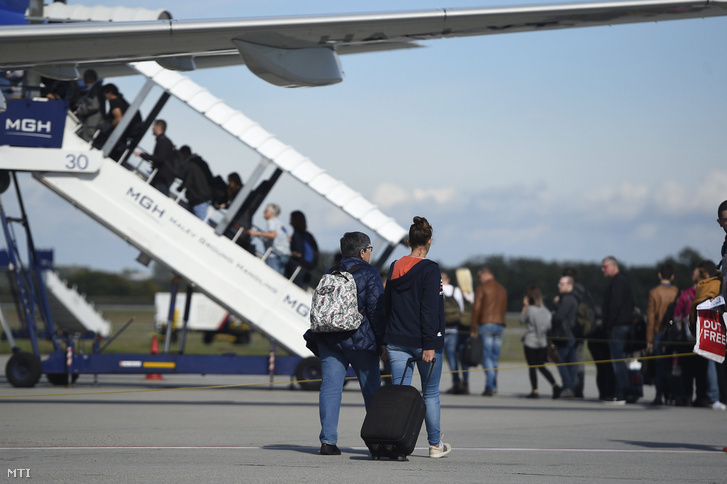How to avoid getting your baggage ransacked at Budapest Airport

További In English cikkek
Thefts have always been present at airports. Budapest Airport was no exception, but since last year the incidents have become rampant. The thieves seem to go mostly for passengers of Wizzair, a Budapest based low-cost airline, and carry-on luggage taken away during boarding is the most affected. Locks are easily cracked, but shrink-wrapped suitcases are fiddly to open, so they are usually left untouched. The clues point to the Budapest luggage handlers. One of them – who prefers to remain anonymous – spoke to Index.
The suitcases are ransacked in the cargo hold of the planes, not in the airport building as one would expect – says our source. The baggage handling system in the building is fully automated, and the path of the bags is under constant CCTV surveillance up to the point where they leave the processing unit. After that, three handlers take over on the tarmac to load the bags on the plane. One stays outside to place the bags onto the conveyor belt that takes them to the cargo hold, while two others are supposed to handle the bags inside. But while one packs, the other unpacks. The unpacker first takes the hard-to-open bags and stacks them into a wall, then hides behind that wall to wait for the packer to pass the promising bags off to him for opening. The reason behind this level of organisation is that there are only 30 minutes available to load the plane, and since there are only two people doing the job of three as one is busy earning extra for all of them, there is no time to waste.
Members of airport security are likely to be in on it as well, as they often avert their cameras from suspicious events in key moments when they are present during the loading. Police also show up at random intervals to check on the baggage handlers, but they can be spotted from a mile, as they are the only people at the airport driving around in civilian cars with no corporate markings.
Our source also told us that luggage handlers don't work for the airport directly – often they are employed by the second or third subcontractor, and there are so few applicants for the difficult and severely underpaid job that they practically hire anyone who walks in, the screening process is taken lightly. He heard about people with criminal backgrounds working there, and some handlers were fired from one subcontractor only to be hired by another a week later, resuming work in the same place, the same way. But poor working conditions encourage theft even among those who wouldn't do it in the first place. They move tons of cargo each day, often on their knees ruining their joints, surrounded by jet fuel fumes and extreme noise against which the ear protection they get gices hardl yany protection. They earn €3/hour for the hard physical labour, while temptations are high. Our informant opined that while thefts happen at any airport, improved conditions and higher wages would do wonders to alleviate the current Budapest situation.

He also told us what you can do to protect yourself and your luggage:
- Shrink-wrapped bags are more of a hassle to open, therefore they are in less danger.
- Examine your bag as soon as you receive it. Time is of the essence; you need to report the theft as soon as possible.
- Do not leave valuables in your suitcase.
- If the airline takes your carry-on luggage away from you during check-in, take your time to remove all your valuables from it.
He also said some flights are safer than others. Planes leaving for Tel Aviv have their separate security service, and flights to London tend to be safer even at budget airlines.
This article is a summary of two earlier articles published by Index in Hungarian.

Support the independent media!
The English section of Index is financed from donations.


